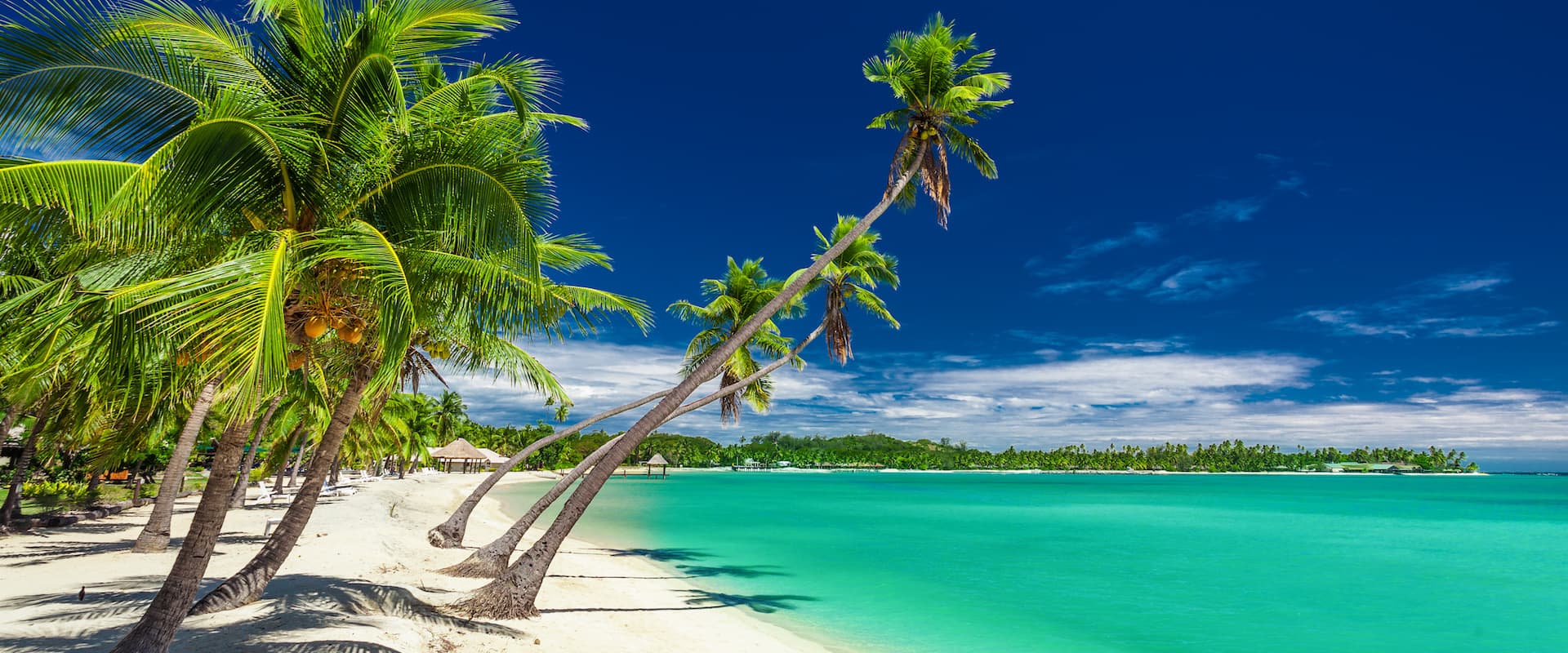Snorkeling Fiji
Snorkeling in Fiji
Snorkeling in Fiji is extremely special, with a huge network of over 4000 square miles of coral reefs surrounding the 333 islands and atolls which Fiji is comprised of. It is home to 'The Great Astrolabe Reef' and is often referred to as the 'Soft coral capital of the world'.
Fiji snorkeling offers unparalled marine biodiversity the reefs support around 1000 species of fish and several hundred types of corals and sponges. Therefore, snorkelers will be blown away with the array of marine life to be experienced at the numerous snorkel sites.
1 Snorkeling Cruise in Fiji
Explore all liveaboards
Nai'a
Fiji-
- from $ 600 / day
- 9.5 Exceptional
- 16reviews
Marine Life in Fiji
As a result of this abundance of soft coral diversity and a healthy ecosystem, an array of large marine fauna also thrives off the coast of Fiji. Two of the main attractions are the number of shark species and the opportunity to see manta rays whilst snorkeling. Fiji is also home to five turtle species including the endangered Hawksbill Turtle, which has nesting grounds on certain islands.
Shark species which may be encountered include Grey Reef Tips, Silver-Tips, Hammerheads and White Tips. If you are looking for an experience which is less adrenalin induced there is the slightly slower paced opportunity to snorkel with Manta Rays, these elegant creatures are some of the largest in the ocean their wingspan can reach up to 6.5meters. Which makes an unforgettable snorkel experience and don't forget you camera as it poses some amazing photographic opportunities.
Best Snorkel Sites in Fiji
Snorkeling the Namena Marine reserve is a must do when in Fiji. It is a fantastic example of local conservation efforts and as a result it is now home to some of Fiji's most pristine reefs, hosting schools of Barracudas, large numbers of Jacks, Snappers and Grey Reef Sharks alongside 3 different species of beautiful reef snakes. There are plenty of snorkel sites from which you can appreciate this bio-diverse world and if it is the larger marine mammals that you are wishing to encounter then Namena is perfectly located as it is an important migratory pathway for whale and dolphin species including Bottlenose, Spinner dolphins and Minke, Pilot, Sperm and Humpback Whales. The best way to access the reserve is via a liveaboard trip.
A snorkel trip to Makongi Island will not disappoint. The North end of the Island is protected by reef. One of the best sites to visit is the coral gardens, a series of Coral Bommies which Turtles, White Tip Sharks, Moray Eels, Lion Fish and Nurse Sharks all grace this area with their presence. Another site not to be missed is Rustic Arch which has a stunning underwater topography.
Wakaya Pass is a breathtaking snorkel site, and the main feature is a huge reef wall which drops off to the sea floor 140ft down, this drop-off makes for an impressive and unforgettable experience. Attracting many marine creatures such as Blue Ribbon Eels, White Tips, Nurse Sharks, and Hammerhead Sharks along with Manta rays, Marble rays, Turtles, Eagle rays and Barracudas a feast for the eyes.
A snorkel tour at Makongi channel is for the more experienced swimmer, as it is most often a drift snorkel due to its location at the entrance to the inner reef. On the incoming tide the visibility is generally good and sometimes exceeds 30m/100ft. A beautiful experience, as you drift along taking in the beauty of the underwater world.
The best snorkel site for avid shark fans is a site known as Shark Fin point, an extremely colourful site for the adventurous snorkeler. Located of the Coast of Koro Island, you have to go when conditions are calm or there is the possibility of strong currents. There are schools of around 500 barracudas, Eagle rays, many White tips, lots of Grey reef sharks, Lobsters, Eels, and if you are really lucky at certain times of year you may encounter some of the majestical Whale Sharks.
Best Time to Snorkel in Fiji
Fiji has a tropical climate, which means water temperatures are moderate year round. Therefore the water is always a comfortable temperature for snorkeling. Water temperatures are warmest from January to June averaging between 28-30°C. From July to December temperatures drop a few degrees to 22-25°C, on the plus side this is when visibility is the best.
If it is the Manta Rays that you are looking to spend time in the water with, it is advised to visit between November to April, this is the rainy season, yet the waters then are rich with plankton which attracts the larger marine creatures such as Manta Rays and Whales.
How Do I Get to Fiji
Fiji has two international airports, airlines from across the globe run flights to Fiji. The main airport is Nadi International Airport and Nasouri is the second international airport which is located on the Eastern Side of Viti Levu. From these airports you are centrally located to explore the beautiful snorkelling sites that the Fijian Islands have to offer, and a liveaboard is the best way to experience this amazing area.
1 Snorkeling Cruise in Fiji
Explore all liveaboards
Nai'a
Fiji-
- from $ 600 / day
- 9.5 Exceptional
- 16reviews











